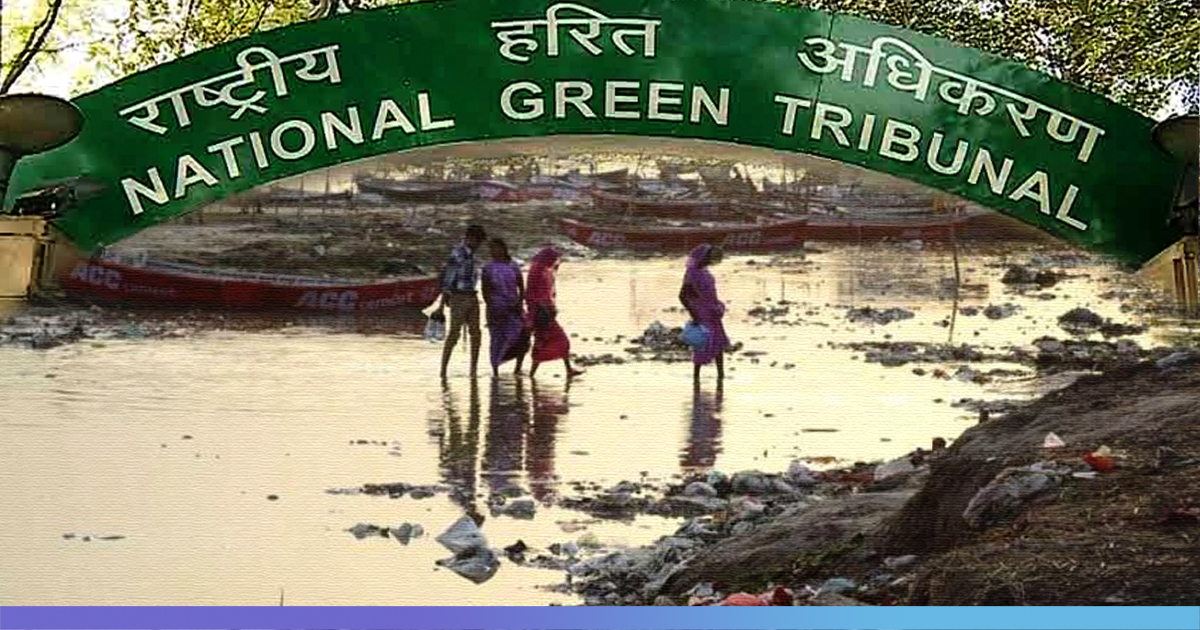The Kumbh Mela, which started on January 15 and concluded on March 4 this year, has resulted in the accumulation of a huge amount of solid waste in Prayagraj. After the 49-day festival, the National Green Tribunal (NGT) has expressed disappointment over the fact that the city is almost at the verge of an epidemic.
The Uttar Pradesh chief secretary has been instructed to appear before the NGT on April 26 due to extremely severe lapse and was asked to take immediate steps to dispose of the waste. NGT also told the chief secretary that in this regard, he has to fix the accountability of officers.
Severe lapses in management
A committee had been appointed by the Tribunal to ensure that there is no further pollution of the Ganga during the Kumbh Mela. The NGT’s present order is based on the report of this committee, reported Hindustan Times.
The report filed by the committee headed by Justice Arun Tandon said that the NGT warned that the situation in the area requires to be dealt with urgently to prevent the spread of epidemics.
According to a bench headed by NGT chairperson Justice Adarsh Kumar Goel, it must be ensured that senior-level officers are involved in personal supervision. The accountability, it said, requires to be fixed at the ground level.
The NGT report quoted the UP chief secretary and said that at the Baswar solid waste treatment plant, as much as 60,000 metric tonnes (mt) of untreated solid waste got accumulated. Even as the plant since September 2018 was not operational, 18,000 mt of the collected waste was generated at the Kumbh Mela alone.
As predicted by the NGT report, it is likely that there will be a rise in cases of acute diarrhoea, enteric fever, viral hepatitis and cholera. It further said that even groundwater had been polluted.
With dirty toilet water getting collected in kutcha pits, the base of which had not been lined, the water could percolate underground.
“The committee found that a large number of toilets were constructed in camps on the Arail side, very close to the river. The Rajapur Sewage Treatment Plant (STP) received excess sewage than the installed capacity. Only 50% of the Rajapur drain was being treated through geo-tube (it extracts solid waste from the waste going in the drain so that only water enters it) and the remaining 50 per cent was being permitted to enter the Ganga without treatment,” NGT said.
According to additional municipal commissioner, Prayagraj, Amrendra Verma, the solid waste at the Baswar plant will be processed by the private firm ‘Hari Bhari’. A notice on the corporation has been served already.
He further said that as a tender has been allotted for the task to the private firm, disposal of solid waste is not a task that the municipal corporation is directly responsible for. A notice has been issued to ensure that the task is completed at the earliest, due to the firm failing to do its work efficiently. Municipal Commissioner Ujjawal Kumar, was monitoring the waste disposal of the Kumbh Mela directly, is on leave and will come back within some days.
Divisional Commissioner, Prayagraj, Ashish Kumar Goel said that the facts regarding the solid waste disposal would be soon placed before the tribunal. Goel is also the chairman of the Kumbh Mela Authority, which is the main organizing body of the fair. The tribunal also said that the sewage treatment plant at Salori was not working properly either.
The tribunal said that it had so much sewage that it could not treat it, and the geo-tube was also not working properly. While 50% of the drain’s sewage was trapped, the rest was flowing into the Ganga.
Geo-tube technology dubbed a failure
Further, NGT dubbed the geo-tube technology, which is a much-talked-about issue, a failure. “The Mawaiya Nala, where the technology has been adopted, had a bypass because of which untreated water from the drain entered the Ganga. The committee also found that there existed a big, dirty water pond at Parmarth Niketan Arail and human excreta was seen floating in it,” NGT said.
The report also said that another drain, Mansuthia, had a bypass resulting in an untreated and treated waste meeting before entering the Ganga. NGT mentioned that in placed were geo-tube technology has been adopted, creation of bypass has allowed dirty water to go into the river.
The amicus curie in the Re-Ganga Pollution case, AK Gupta, said that he had submitted an application mentioning 83 drains in the city in the Allahabad High Court, and yet during the Kumbh Mela, 46 of their drains were kept untapped. This allowed untreated sewage water to get dumped in the Ganga and the Yamuna.
“I had apprised Divisional Commissioner Ashish Goel several times about untapped drains but he not only chose to ignore the same but also kept me out of every committee supervising the same,” he said.
Ingio Contractors Private Ltd, however, decided to challenge the NGT report. The geo-tube technology, which is meant to filter sewage waste before it enters the river, was implemented by this firm. The firm’s director, Rajnish Mehra, said that at any cost they will justify its working before the tribunal.
The committee further found many other violations of NGT orders, like 36 ponds without any lining being dug up on the bank of the Ganga. In fact, some of them even had dirty water.
The Mela administration was also hit out at by the order for not cooperating with the supervisory committee on issues like non-installation of public toilets built on the river banks.
“Pucca constructions were being raised on the Yamuna bank and despite notices, the authorities did not disclose as to who had sanctioned the maps/building plans. The administration was trying to “hoodwink the cleaning of waste from the soak pits and septic tanks and ponds,” said NGT.
While Kumbh Mela was an event that people from across the country enjoyed, issues like these should have been dealt with with a lot more seriousness, because the destruction that pollution can cause to the environment and human beings might end up being irreparable.











